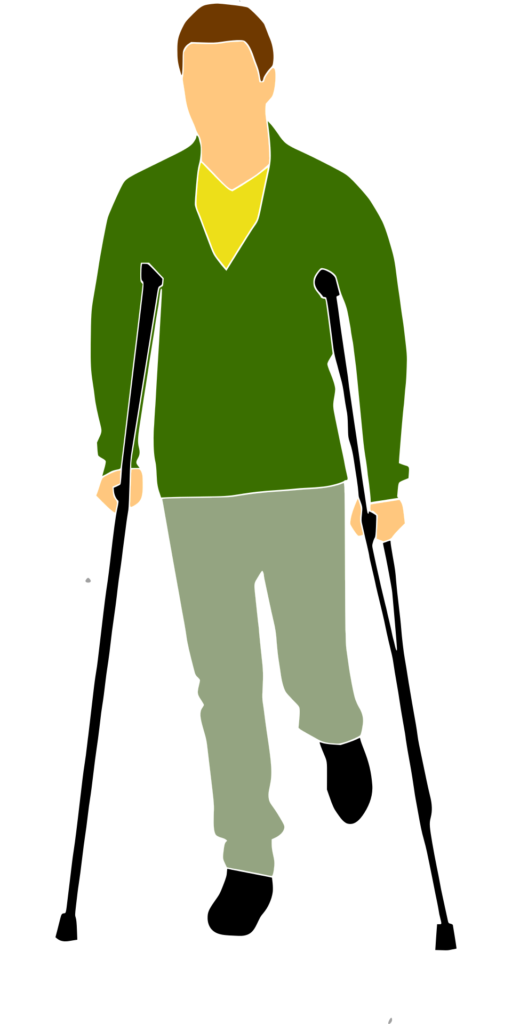
Dealing with personal injuries can be a challenging and often overwhelming process. Whether it’s a minor mishap or a critical accident, the aftermath often brings physical discomfort, emotional stress, and financial burdens. This guide aims to provide useful, practical tips to help you navigate through the complexities that come with personal injuries and ensure that you are taking the right steps towards recovery and securing any legal rights you may have.
Seek Immediate Medical Attention
Whether your injury seems minor or severe, it’s crucial to seek immediate medical help. Medical professionals can accurately assess the extent of your injuries and provide necessary treatment. Moreover, documentation of your medical visits serves as crucial evidence should you decide to pursue a legal claim. Follow-up visits are equally important for your recovery and legal claims. They demonstrate a continuous need for care, reinforcing the severity of your injury.
Make sure to adhere to all medical advice and prescribed treatments. Not only does this enhance your recovery process, but it also prevents any arguments that your injuries worsened due to your negligence. Additionally, keeping a record of all medical expenses and lost wages can help determine the value of your damages and any potential compensation.
Consult a Personal Injury Lawyer
Consulting with a personal injury lawyer early in the process can make navigating the legal landscape much smoother. They can provide advice tailored to your specific situation, and help you understand your rights and potential for compensation. A personal injury lawyer can also handle communication with insurance companies and other parties involved, preventing you from making any costly mistakes or unintentionally admitting fault. Plus, most lawyers offer free consultations, so there’s no harm in seeking their advice.
Additionally, a lawyer can help you gather evidence to support your claim and build a strong case. This may include obtaining witness statements, collecting medical records and bills, and gathering any other relevant documents. They can also negotiate with insurance companies on your behalf to ensure that you receive fair compensation for your injuries.
Document Everything
A thorough record of events surrounding your injury can be invaluable. Start by writing a detailed account of the incident, including the date, time, location, and any relevant circumstances. It can be easy to forget minor yet potentially important details as time passes, so do this as soon as you can. Photographs of injuries and the accident scene can provide compelling visual evidence. If possible, take photos immediately after the incident and throughout your recovery process. Keep a record of all expenses related to your injury.
This includes medical bills, prescription costs, and any other related expenses like travel to medical appointments. These records can be crucial in claiming compensation. Additionally, keep track of any time missed from work and the wages lost as a result. Keep in mind to only share necessary information with insurance companies and other parties involved, as anything you say or post could potentially be used against you. Stick to the facts and avoid discussing your case on social media platforms.
Dealing with Insurance Companies
When dealing with insurance companies, remember they’re not on your side. Their primary goal is to minimize the compensation they pay out. Therefore, be cautious when providing statements or signing documents without consulting your lawyer first. Keep all communication with insurance companies in writing. It’s easier to keep track of what has been said, preventing miscommunication or forgotten details. Don’t feel rushed to accept the first settlement offer. It’s often worth holding out for a better deal, especially if your lawyer advises so.
For example, if you’ve suffered from a car accident and the insurance company offers to cover your medical expenses and lost wages, it may seem like a fair deal. However, what about the long-term effects of the injury or pain and suffering endured? A lawyer can help determine the true value of your case and negotiate for a more comprehensive settlement.
Take Care of Your Mental Health
Physical injuries often take a toll on mental health. You may experience feelings of anger, frustration, anxiety, or depression. It’s crucial to acknowledge these feelings and seek professional help if necessary. Find healthy coping mechanisms that work for you. This could be anything from meditation, gentle exercise, or talking to a trusted friend. It’s okay not to be okay. Healing is a process, and it’s normal to have good days and bad days. Be patient with yourself.
Firstly, prioritize your physical recovery. Not only will this help your mental state, but it will also prevent any potential arguments that you didn’t follow medical advice. Additionally, keep a record of any emotional distress or mental health treatment related to the incident. These can be included in your claim for compensation as well.
Plan for the Future
Planning for the future after experiencing a personal injury is a critical step in the recovery process. The first step should be to establish a rehabilitation plan that aligns with your medical professional’s advice, which may include physical therapy, occupational therapy, or other treatments to help you regain physical capabilities.
It’s also essential to plan your finances. Personal injuries often lead to unexpected costs, and potentially a loss of income if you’re unable to work. You may want to consult with a financial advisor or a lawyer to understand any compensation you could be entitled to, and how to budget these funds appropriately.
Consider the potential long-term effects of your injury on your career. You may need to reevaluate your career goals or explore alternative careers if your injury affects your ability to perform your current job. Vocational counselors or employment services can be valuable resources in this process.

Personal injuries can transform your life temporarily or permanently, making it essential to understand how to deal with such situations effectively and efficiently. Remember, the main aim is to focus on your recovery and ensure your rights are protected. This guide serves as a comprehensive resource during this challenging time, offering essential tips on seeking immediate medical attention, consulting a personal injury lawyer, documenting everything, dealing with insurance companies, caring for your mental health, and planning for the future.
Each step is crucial in navigating the aftermath of a personal injury, helping you to achieve the best possible outcome. Stay patient and persistent throughout the process, and never hesitate to seek professional help when needed.





